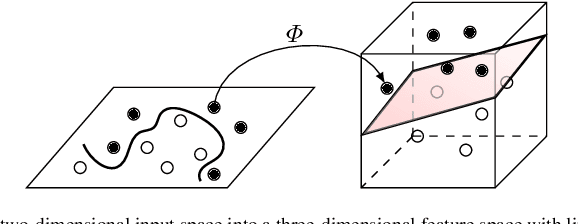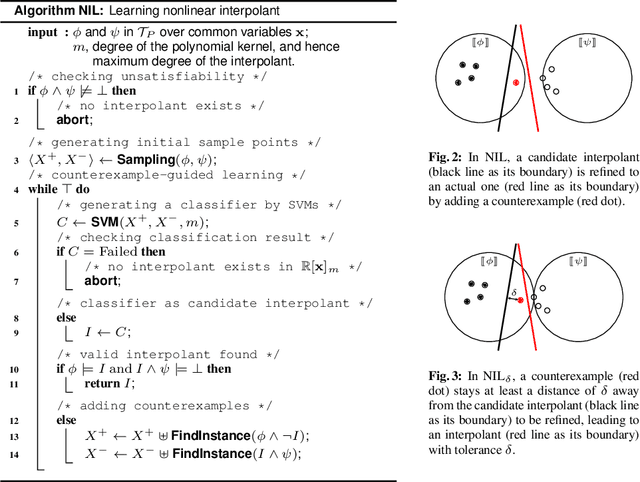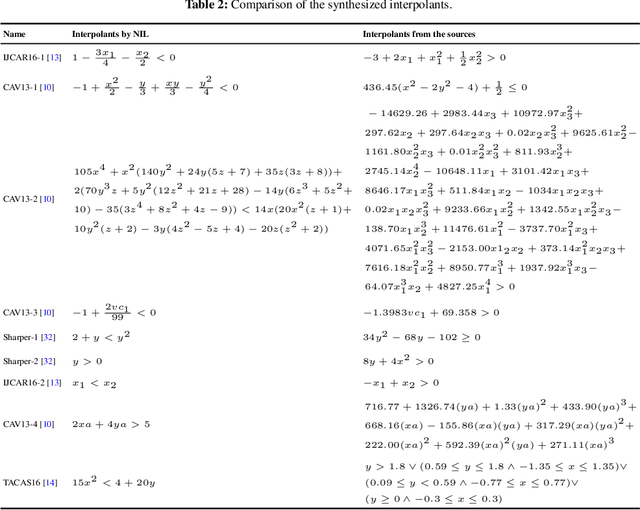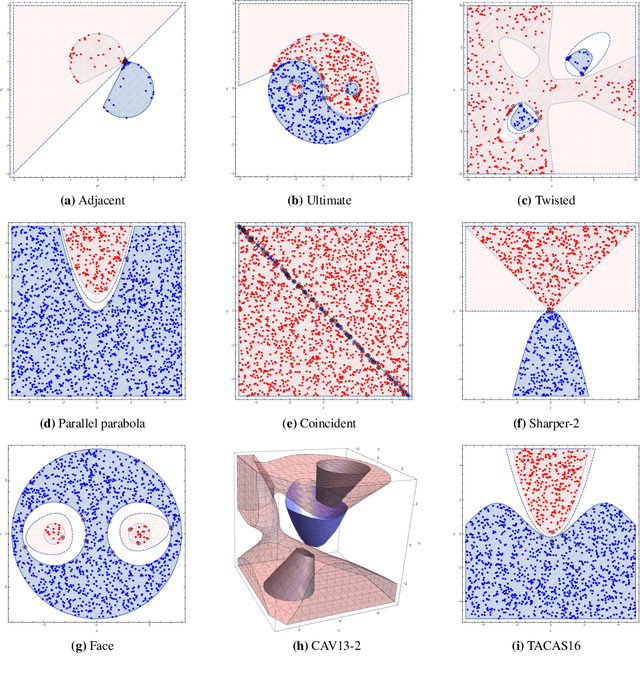Naijun Zhan
Enhancing Transformation from Natural Language to Signal Temporal Logic Using LLMs with Diverse External Knowledge
May 27, 2025Abstract:Temporal Logic (TL), especially Signal Temporal Logic (STL), enables precise formal specification, making it widely used in cyber-physical systems such as autonomous driving and robotics. Automatically transforming NL into STL is an attractive approach to overcome the limitations of manual transformation, which is time-consuming and error-prone. However, due to the lack of datasets, automatic transformation currently faces significant challenges and has not been fully explored. In this paper, we propose an NL-STL dataset named STL-Diversity-Enhanced (STL-DivEn), which comprises 16,000 samples enriched with diverse patterns. To develop the dataset, we first manually create a small-scale seed set of NL-STL pairs. Next, representative examples are identified through clustering and used to guide large language models (LLMs) in generating additional NL-STL pairs. Finally, diversity and accuracy are ensured through rigorous rule-based filters and human validation. Furthermore, we introduce the Knowledge-Guided STL Transformation (KGST) framework, a novel approach for transforming natural language into STL, involving a generate-then-refine process based on external knowledge. Statistical analysis shows that the STL-DivEn dataset exhibits more diversity than the existing NL-STL dataset. Moreover, both metric-based and human evaluations indicate that our KGST approach outperforms baseline models in transformation accuracy on STL-DivEn and DeepSTL datasets.
NIL: Learning Nonlinear Interpolants
May 28, 2019



Abstract:Nonlinear interpolants have been shown useful for the verification of programs and hybrid systems in contexts of theorem proving, model checking, abstract interpretation, etc. The underlying synthesis problem, however, is challenging and existing methods have limitations on the form of formulae to be interpolated. We leverage classification techniques with space transformations and kernel tricks as established in the realm of machine learning, and present a counterexample-guided method named NIL for synthesizing polynomial interpolants, thereby yielding a unified framework tackling the interpolation problem for the general quantifier-free theory of nonlinear arithmetic, possibly involving transcendental functions. We prove the soundness of NIL and propose sufficient conditions under which NIL is guaranteed to converge, i.e., the derived sequence of candidate interpolants converges to an actual interpolant, and is complete, namely the algorithm terminates by producing an interpolant if there exists one. The applicability and effectiveness of our technique are demonstrated experimentally on a collection of representative benchmarks from the literature, where in particular, our method suffices to address more interpolation tasks, including those with perturbations in parameters, and in many cases synthesizes simpler interpolants compared with existing approaches.
 Add to Chrome
Add to Chrome Add to Firefox
Add to Firefox Add to Edge
Add to Edge